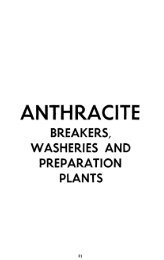Reports of the Inspectors of Mines of the anthracite coal regions of ...
Reports of the Inspectors of Mines of the anthracite coal regions of ...
Reports of the Inspectors of Mines of the anthracite coal regions of ...
You also want an ePaper? Increase the reach of your titles
YUMPU automatically turns print PDFs into web optimized ePapers that Google loves.
54 <strong>Reports</strong> <strong>of</strong> <strong>the</strong> iNsrECTORS <strong>of</strong> <strong>Mines</strong>. [No. 10,<br />
keep his place properly propped and timbered. Neglecting or refusing to<br />
do so, he is liable to be tried for misdemeanor, and upon conviction sJiall<br />
be punished by imprimnment and fine, at <strong>the</strong> discretion <strong>of</strong> <strong>the</strong> court.<br />
Section eight, <strong>of</strong> <strong>the</strong> same law, requires tlie operator to employ a com-<br />
petent and practical inside overseer, to be called mining-boss, who shall<br />
keep a careful watcli over tlie * * * * timbering, to see, as <strong>the</strong><br />
miners advance in <strong>the</strong>ir excavations, that all loose <strong>coal</strong>, slate, or rock over-<br />
head is carefully secured against falling * * * * ^nd all things con-<br />
nected with and appertaining to <strong>the</strong> safety <strong>of</strong> <strong>the</strong> men at work in <strong>the</strong> mine.<br />
The report <strong>of</strong> <strong>the</strong> said accident contained a statement that <strong>the</strong> miner<br />
had neglected and refused to tjmber his place, and that <strong>the</strong> accident to <strong>the</strong><br />
man Coon was <strong>the</strong> result <strong>of</strong> <strong>the</strong> same. On investigation I found <strong>the</strong> statement<br />
was correct. I also came to <strong>the</strong> conclusion that <strong>the</strong> mine boss had<br />
not complied with <strong>the</strong> requiiements <strong>of</strong> <strong>the</strong> law, under section eight. I<br />
<strong>the</strong>refore had <strong>the</strong> miner, Langan,and<strong>the</strong> boss, Davis, bound over to court.<br />
In due time, true bills were found by <strong>the</strong> grand jury against <strong>the</strong>m, and<br />
<strong>the</strong> cases will be called up in <strong>the</strong> January term <strong>of</strong> 1878.<br />
Patent Squibs.<br />
These devices are being used to a considerable extent through <strong>the</strong> dis-<br />
trict, and I am sorrj' to say to <strong>the</strong> detriment <strong>of</strong> ovir miners using <strong>the</strong> same,<br />
according to my humble opinion. I am more convinced than ever that<br />
<strong>the</strong>y are not as safe as <strong>the</strong>ir inventors intended <strong>the</strong>}^ should be, nor as<br />
much so as many persons using <strong>the</strong>m think <strong>the</strong>y are. Mr. Richard Rod-<br />
erick, now a mine-boss, while yet working as a miner, one day had a blast<br />
to miss fire, as he called it, when using <strong>the</strong>se patent squibs, and after due<br />
time, having already heard <strong>the</strong> squib explode, advanced to <strong>the</strong> face <strong>of</strong> his<br />
woi'king place, and, as miners always do, put <strong>the</strong> iron needle into <strong>the</strong> hole,<br />
and when he drew it out again, behold it had <strong>the</strong> patent squib upon its<br />
point, and had part <strong>of</strong> it on fire. Fortunately for Roderick, he had not<br />
pressed that part containing <strong>the</strong> fire on to <strong>the</strong> powder, o<strong>the</strong>rwise <strong>the</strong> blast<br />
would have been exploded, and a life lost in <strong>the</strong> case, (as it likely would<br />
have been,) and charged to a premature explosion <strong>of</strong> a blast, as <strong>the</strong>se acci-<br />
dents are frequentl}^ called.<br />
Ano<strong>the</strong>r incident, in this connection, was related to me by Mr. John E.<br />
Cook, a mine-boss. While on his rounds through <strong>the</strong> workiug places through<br />
<strong>the</strong> mine he came to his bro<strong>the</strong>i-'s place, who was driving a chamber, and<br />
was about to jnit <strong>of</strong>f a blast. The miner prepared and ignited <strong>the</strong> match<br />
attached to <strong>the</strong> patent squib that he was using, and made his way to <strong>the</strong><br />
cross-cut, where <strong>the</strong> two bro<strong>the</strong>rs waited to hear <strong>the</strong> blast explode. Finally<br />
<strong>the</strong>y heard <strong>the</strong> squib explode, but not <strong>the</strong> blast ; <strong>the</strong>}' <strong>the</strong>n pronounced it a<br />
miss fire, and waited a moment or so, and started into <strong>the</strong> chamber, when,<br />
to tlieir great surprise, <strong>the</strong> blast exploded ;<br />
luckil}' for <strong>the</strong>m, however, <strong>the</strong>y<br />
had not reached very near <strong>the</strong> face, and thus were saved b}' a mere chance.<br />
The above two cases and many similiar incidents are strong arguments<br />
against <strong>the</strong> use <strong>of</strong> <strong>the</strong>se patent squibs ; <strong>the</strong>}' are so, in ni}' mind at least.



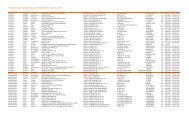
![1945 Anthracite Annual Report Districts 19 - 25 [Adobe pdf - 9148Kb]](https://img.yumpu.com/50308099/1/190x119/1945-anthracite-annual-report-districts-19-25-adobe-pdf-9148kb.jpg?quality=85)
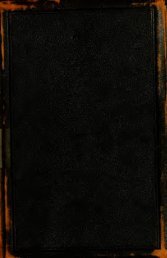

![1937 Anthracite Annual Report Districts 1 - 11 [Adobe pdf - 9394Kb]](https://img.yumpu.com/43539962/1/190x119/1937-anthracite-annual-report-districts-1-11-adobe-pdf-9394kb.jpg?quality=85)
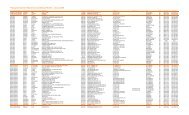
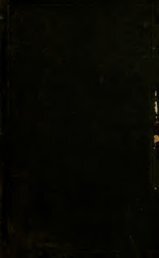
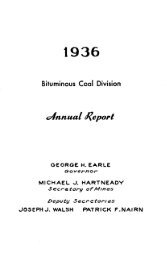

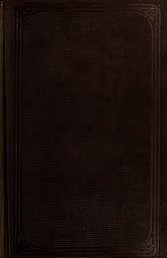
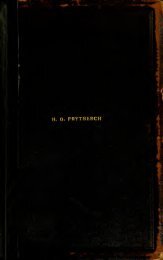
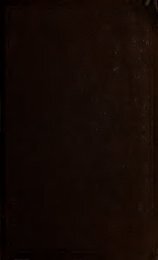
![1931 Anthracite Annual Report Districts 1 - 11 [Adobe pdf - 8007Kb]](https://img.yumpu.com/39427789/1/190x119/1931-anthracite-annual-report-districts-1-11-adobe-pdf-8007kb.jpg?quality=85)
